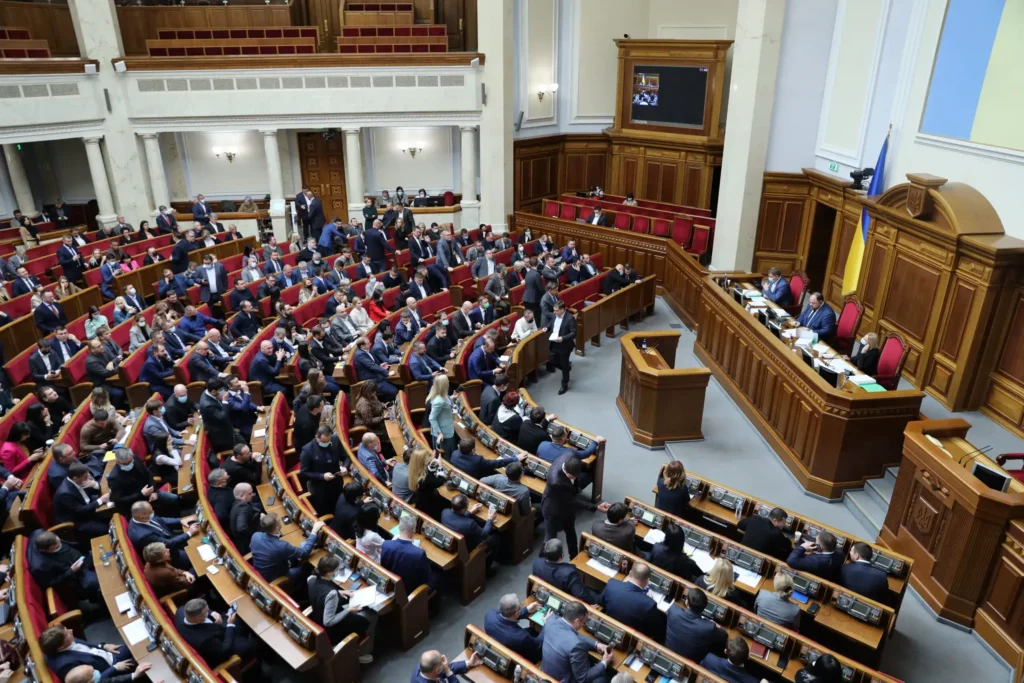Oil at war: Can Ukraine cut off Russian transit after US sanctions?
23 October 2025 17:35 ANALYSIS FROM
ANALYSIS FROM The new US sanctions against Russian energy giants Lukoil and Rosneft were a “cold shower” for the Kremlin and a signal to Moscow’s partners. Stock exchanges reacted instantly and the companies’ shares went into a rapid spike.
But in Ukraine, this decision raised a completely different question: how to explain the transit of Russian oil through the territory of a country at war with the aggressor? Is it possible to allow the transit of Russian oil through Ukraine during the war? What are the risks of trying to break the contract with Moscow? Who will lose more if transit is stopped – Russia, Hungary or Ukraine?
After the introduction of new sanctions against the Russian energy corporations Lukoil and Rosneft, the market reacted instantly – the shares of both companies plummeted. According to international stock exchanges, quotes fell by several percent in the first hours after the sanctions were announced.
Against this background, Ukrainian political scientist and director of the Institute of World Policy Yevhen Magda asked a rhetorical question:
“It will be interesting to see how the Ukrainian authorities will explain the transit of Russian oil through our territory after yesterday’s Trump sanctions against Lukoil and Rosneft…” – Yevhen Magda
Thus, despite the full-scale war, Russian oil is still being transited through the Ukrainian section of the Druzhba pipeline to EU countries, primarily Hungary and Slovakia. The volume of transit in 2024 amounted to approximately 11.3 million tons, the lowest figure in recent years, but the contract is valid until the end of the decade. The transportation contract is valid until 2029.
“We can’t just terminate it,” energy expert
In an exclusive commentary
“We cannot terminate these contracts without reason, that’s the problem. In principle, of course, we can try, but with gas it was easier – we had a deadline and did not extend it, – Sergiy Dyachenko
But here we have a long-term contract, and we may face a lawsuit from the same Magyars, Dyachenko adds. We need to have legal grounds to terminate oil transit agreements.
The expert notes that even under favorable conditions, the termination of the agreement should be prepared very carefully to avoid international lawsuits:
“If we do it illiterately, we may lose. But if we do it together with the Americans and within the framework of sanctions, we may succeed,” Serhiy Dyachenko said
What Ukraine will lose and who will gain
According to Dyachenko, Ukraine’s financial losses in the event of a transit shutdown will be insignificant.
This is not the money we used to get for gas, but there is still some income from the transit of Russian oil, – Serhiy Dyachenko
Instead, Russia will lose a stable oil supply channel to Europe, and Hungary will lose a cheap source of energy.
Hungarians will be forced to look for other sources. Russia will stop receiving money for oil supplies – this is a blow to Moscow. But if we do it wrong, we will have a scandal and legal risks,” Dyachenko adds.
What happened?
Shares of the leading Russian oil companies, Lukoil and Rosneft, lost sharply during the morning trading session on October 23. The reason was a new package of US sanctions announced the day before.
the “red zone” on the stock exchanges. According to the Investing:
- investing.com, Lukoil shares have fallen by 4.37% since the start of trading,
- rosneft’s shares – by 3.21%.
Analysts note that the securities of both companies are in the so-called “red zone” – among the leaders of the fall at the start of the stock exchange session. Along with them, shares of Gazprom, VTB and Sberbank are falling in price.
Investors are already being advised to actively sell these assets to minimize the risk of losses amid the new restrictions.
“Trump’s sanctions: who is affected
on October 22, the United States imposed sanctions against Rosneft and Lukoil, as well as against:
- 28 subsidiaries of Rosneft,
- 6 subsidiaries of Lukoil.
US President Donald Trump said that the decision was “a matter of time”. Moreover, Trump said that he intends to talk to Chinese President Xi Jinping to get Beijing to stop buying Russian oil, which “finances the war.”
I will talk to Xi Jinping. China has to understand that every barrel of Russian oil is a missile aimed at Ukraine. They must stop buying oil that finances the war,” Trump emphasized.
The American president also said that the day before he had spoken with Indian Prime Minister Narendra Modi, and New Delhi promised to stop buying Russian oil by the end of the year.
Global energy is once again becoming an instrument of big politics. The new US sanctions not only hit Russian corporations, but also raise a difficult question for Ukraine: how to combine military ethics with economic realities and international obligations. Legally, we are still bound by the contract, but politically, we face a choice: either to maintain formal agreements or to decisively close any channels of cooperation with the aggressor. As the experts say, “we have to play carefully, but the game has already begun.”
Read us on Telegram: important topics – without censorship









